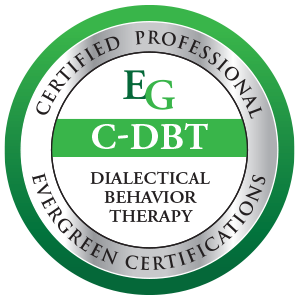Psychological therapy for Personality Disorders
Personality disorders are a range of conditions such as borderline personality disorder, anxious personality disorder and various disruptive personality disorders where the personality of the person does not match the expected norms in society. The result will normally be that the sufferer will react differently to what is normally expected with manipulative, avoidant, anxious, disruptive or in some other way maladaptive response and attitude. Historically this has been seen as NOT a mental health issue, but rather a quirk of personality. More recently it has become common to group personality disorders as mental health issues, partly because of an increased recognition that personal psychological development contributes to the disorders being formed. The psychoanalytic viewpoint is that childhood events and disruptions are key to the formation of maladaptive patterns which characterise these so called disorders.
Sufferers should always maintain close contact and supervision from medical personnel such as their GP or community mental health group. Private therapy should complement this provision, not attempt to replace it.
It should be noted that especially with female clients, abuse survivors are often misdiagnosed as having personality disorders, with a high level of sexual abuse survivors and ASD – abuse survivors being labelled as having Borderline Personality Disorder in particular.
Personality disorders are a group of mental health conditions characterized by inflexible and unhealthy personality traits. These traits deviate significantly from what is considered normal or expected within a person’s culture, leading to significant distress or impairment in social, occupational, or other areas of functioning.
Key Features:
- Inflexible and pervasive patterns: The patterns of thinking, feeling, and behaving associated with personality disorders are rigid and persistent across different situations and relationships.
- Significant distress or impairment: These patterns cause considerable distress to the individual or interfere with their ability to function effectively in daily life.
- Early onset and long duration: Personality disorders typically emerge in adolescence or early adulthood and tend to persist over time.
- Ego-syntonic: Often, individuals with personality disorders do not perceive their traits as problematic, making it challenging to seek help or recognize the need for change.
Types of Personality Disorders:
The Diagnostic and Statistical Manual of Mental Disorders (DSM-5) classifies 10 personality disorders into three clusters based on shared characteristics:
Cluster A (Odd or Eccentric)
- Paranoid Personality Disorder: Characterized by distrust and suspicion of others, often believing that others have malicious intentions.
- Schizoid Personality Disorder: Marked by a lack of interest in social relationships, emotional coldness, and detachment.
- Schizotypal Personality Disorder: Involves unusual thinking, perceptions, and behavior, including odd beliefs, magical thinking, and social anxiety.
Cluster B (Dramatic, Emotional, or Erratic)
- Antisocial Personality Disorder: Characterized by a disregard for and violation of the rights of others, often involving deceitfulness, impulsivity, and aggression.
- Borderline Personality Disorder: Marked by instability in relationships, self-image, and emotions, as well as impulsivity and intense fear of abandonment.
- Histrionic Personality Disorder: Involves excessive emotionality, attention-seeking behavior, and a need for approval.
- Narcissistic Personality Disorder: Characterized by an inflated sense of self-importance, a need for admiration, and a lack of empathy.
Cluster C (Anxious or Fearful)
- Avoidant Personality Disorder: Involves social inhibition, feelings of inadequacy, and hypersensitivity to negative evaluation.
- Dependent Personality Disorder: Characterized by a pervasive need to be taken care of, leading to submissive and clinging behavior.
- Obsessive-Compulsive Personality Disorder: Marked by a preoccupation with orderliness, perfectionism, and control, often at the expense of flexibility and efficiency.
Causes:
The exact causes of personality disorders are not fully understood, but they are thought to arise from a combination of:
- Genetic factors: A family history of personality disorders or other mental health conditions can increase the risk.
- Environmental factors: Early childhood experiences, such as trauma, abuse, or neglect, can contribute to the development of personality disorders.
- Neurobiological factors: Differences in brain structure and function may play a role.
Treatment:
Treatment for personality disorders can be challenging, but it is possible to manage symptoms and improve quality of life. Common treatment approaches include:
- Psychotherapy: Talk therapy, such as cognitive behavioral therapy (CBT) or dialectical behavior therapy (DBT), can help individuals identify and change unhealthy thought patterns and behaviors.
- Medication: Medications, such as antidepressants or mood stabilizers, may be used to address specific symptoms, such as depression or anxiety.
- Support groups: Connecting with others who have similar experiences can provide support and encouragement.
It’s important to remember that personality disorders are complex conditions that require professional help. If you or someone you know is struggling with a personality disorder, seeking treatment from a qualified mental health professional is essential.
Psychological therapy
NICE recommend psychotherapy, preferably twice a week for people with personality disorders. This is often provided as part of NHS care in times of crisis or acute presentation. In practice however many people suffering from personality disorders have to seek support via the private sector, especially if they are high functioning and not is a state of acute crisis (and thus are a priority). DBT is a frequently NICE recommended option. In fact DBT is considered the “gold standard” for under-controlled personality disorders, with RO-DBT an additional complementing model for overcontrolled cases.
Psychotherapy often looks at the relationship between people with personality disorders and events, people, environments and relatonships, seeking to analyse, inform and psychoeducate the sufferer in order to allow them to function more normally and happily, and to enable them to relearn the maladaptive patterns. In effect the objective is to take the unhelpful pattern, and replace it with a new more productive and helpful pattern which enables the client to get their desired outcomes.
Types of psychotherapy
The main goals of the psychotherapy are around analysis, identification, understanding and psychoeducation, therefore forms of psychological therapy with an emphasis on these functions are helpful. Examples would include CBASP or other cognitive behavioural analysis processes with a high degree of situational analysis and relearning.
Also helpful are methods of self analysis such as those learnt in active mindfulness, and methods of lifestyle coaching and design.
Methods like meditation and relaxation therapy might also be of use in addressing the “knock on” effects of having a personality disorder, which might include anxiety, stress, depression and anger. More information on managing these are listed elsewhere on this site.
Co-morbidity
Sufferers may also suffer from bipolar, anxiety disorders, depression, anxiety, OCD, substance misuse or dependence, relationship difficulties, life function issues and general problems with well being and these may need additional therapy support.
The therapist
Stuart is a psychodynamic and cognitive behavioural analyst, stress counsellor and clinical hypnotherapist who is also qualified and registered to provide psychotherapy, psychology, coaching and counselling. He has also completed post qualification training in additional analysis and psychotherapy methods and mindfulness.
Key Words
Anxious personality disorder, general personality disorder, borderline personality disorder, personality disorder, bipolar disorder, depression anxiety disorder, anxiety, mental health, psychotherapy, CBT, CBASP, counselling, therapy, therapist, psychology, psychologist, Edinburgh, Glasgow, analysis, analyst, cognitive behavioural therapy, cognitive behavioural analysis, situational analysis, psychoeducation
Contact via the contact us page HERE




